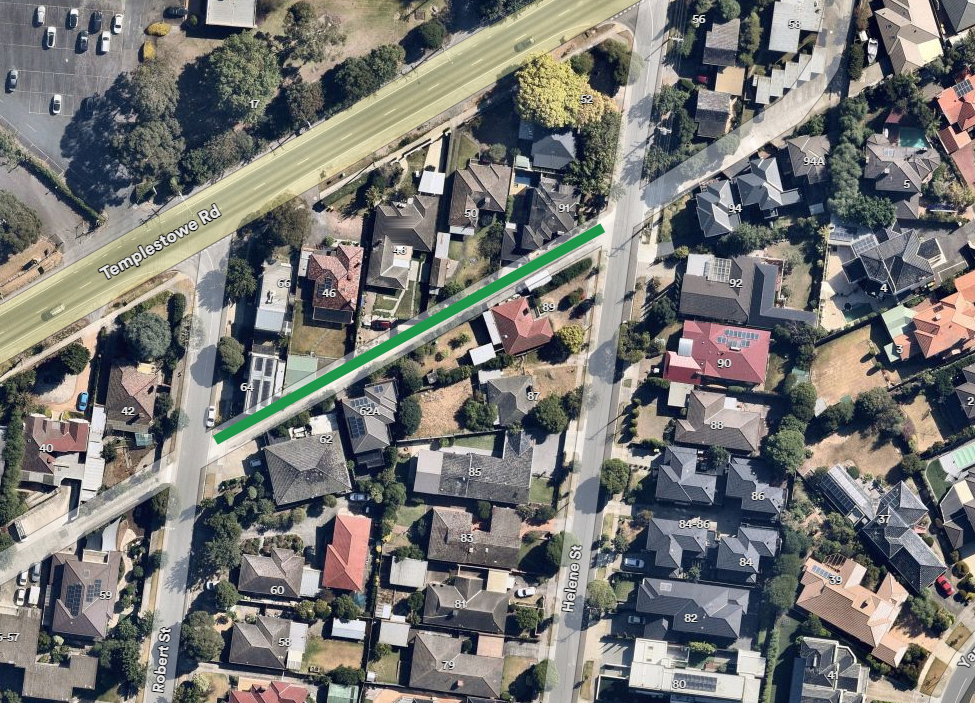Prime Minister
- Since the establishment of diplomatic relations in 1946, the Republic of the Philippines and the Commonwealth of Australia have developed a strong and enduring partnership built on mutual respect, understanding and shared values.
- We recall that the Comprehensive Partnership between the Philippines and Australia established in 2015 highlights the concerted efforts of our governments and peoples to advance bilateral relations.
- Recognising the strength and dynamism of our long-standing bilateral ties and to mark a new chapter in our relations, the Philippines and Australia declare the elevation of our relationship from a Comprehensive Partnership to a Strategic Partnership.
- Our Strategic Partnership is established in the spirit of friendship, and founded on shared democratic values and a common vision for the region where strategic agency is freely exercised and sovereignty is upheld. For the benefit of both countries, we are committed to strengthening our ties, deepening cooperation and enhancing capacity, striving for a region that is open, resilient and prosperous. The Strategic Partnership lays the foundation for our two countries to cultivate and nurture our productive potential, innovation, and creativity. We will explore new opportunities and address common challenges, recognising our collective agency and shared responsibility to respond to changing dynamics in the region.
- In declaring this Strategic Partnership, we reaffirm our shared interests in building prosperity and preserving peace in the Indo-Pacific. We recognise that stability in the region is anchored on respect for national sovereignty and shaped by long-standing agreed rules and norms, based on international law. We will work in partnership to build strategic capability and demonstrate our shared commitment to maintaining an environment that guards against conflict.
- We remain committed to ASEAN centrality and recognise the importance of an inclusive ASEAN-led architecture for regional peace, stability and prosperity, characterised by the principles of openness, transparency, good governance, respect for sovereignty and adherence to international law and the rules-based international order. In recognition of the elevation of ASEAN-Australia relations to a Comprehensive Strategic Partnership in 2021, we commit to support and uphold the principles articulated in the ASEAN Outlook on the Indo-Pacific.
- We welcome the Quad’s steadfast support for ASEAN centrality and the ASEAN Outlook on the Indo-Pacific, including through its positive and practical agenda to support regional partners’ priorities and needs and its ambition for an open, stable and prosperous Indo-Pacific region.
- We will deepen and strengthen our ties based on adherence to the United Nations Charter.We uphold the principle of free and fair trade, open markets and resisting protectionism, the rules-based multilateral trading system, as well as mutually respected rules and norms that have shaped our relations for many decades.
Political and Strategic Cooperation
- We commit to deepening political and strategic cooperation through frequent high-level bilateral exchanges and meetings, as well as through political dialogues and consultations in regional mechanisms.
- In addition to the biennial foreign affairs and trade Philippines-Australia Ministerial Meeting (PAMM), under the Strategic Partnership we will establish an annual Defence Ministers’ Meeting. We commit to continue regular high-level officials’ talks, including but not limited to, the Philippines-Australia Strategic Dialogue and the Philippines-Australia Maritime Dialogue. These will cover the breadth of our bilateral political and strategic relationship, including defence and security, maritime security cooperation, counter-terrorism and combating transnational and organised crime, critical infrastructure security, non-proliferation, arms and export controls, development cooperation, and consular and crisis management, including traditional and non-traditional crises.
Defence and Security Cooperation
- We will enhance and strengthen our extensive and long-standing defence and security cooperation, supported by the Enhanced Defence Cooperation Program. Together, we make a meaningful contribution to regional and global security including by working with other regional partners. We will continue high-level defence consultations; cooperation in humanitarian and disaster response; education and training; cooperation and support on law enforcement, counter-terrorism, countering violent extremism, money laundering, human trafficking, illegal drug trafficking, supporting women and youth, peace and security, and maritime security; and participation in joint exercises and activities. We will solidify our cyber affairs and critical technology cooperation, including through information sharing, particularly in investigating cybercrime and cyber-enabled crimes.
- Both countries underscore that all disputes should be resolved peacefully, without the threat or use of force or coercion, in accordance with international law, particularly the 1982 United Nations Convention on the Law of the Sea (UNCLOS), and that the South China Sea Arbitration Award of 12 July 2016 is final and legally binding on both parties, and call on both parties to abide by the award.
- As maritime nations, we reaffirm the importance of maritime safety and security, freedom of navigation and overflight and other lawful uses of the seas in accordance with UNCLOS. To this end, we will strengthen bilateral and regional cooperation between maritime policy-making, administration, security and law enforcement agencies through dialogue and coordination, practical engagement and capacity-building activities. We will plan bilateral joint patrols in the South China Sea and in areas of mutual interest to support regional peace and stability.
- Both countries recognise the importance of peace and stability across the Taiwan Strait.
- We reaffirm our commitment to the preservation of regional peace and stability, and the rules-based international order. We look forward to the positive contribution the AUKUS security partnership will have to the collective security and stability of the region.
- We reaffirm our shared ambition for a world without nuclear weapons and will work together to strengthen the global nuclear non-proliferation and disarmament regime. We will continue to support the International Atomic Energy Agency’s essential role in facilitating peaceful uses of nuclear energy and technology while safeguarding against nuclear weapons proliferation. We affirm the international ban on the production and use of biological and chemical weapons.
Economic Relations
- Through mechanisms such as the PAMM and the Philippines-Australia Trade, Investment and Industry Dialogue, we will bolster our economic security and expand bilateral trade and investment. We will explore opportunities to broaden mutual economic cooperation, including developing resilient supply chains, supporting the climate and the clean energy transition, and in mining and minerals processing, education, food security, digital and creative economies, the Blue Economy across various sectors such as fisheries, aquaculture and maritime transport, and high-quality infrastructure development. We seek a region that is predictable and operates by agreed rules, standards and laws-where all countries are free from coercion. To this end, we will work together to strengthen and reform the rules-based multilateral trading system with the World Trade Organization (WTO) at its core, including having a fully and well-functioning WTO dispute settlement system, accessible to all members, by 2024.
- Building on the complementary nature of our two economies, we will help business take advantage of meaningful market access opportunities to achieve balanced trade, eliminate unnecessary barriers to trade and investment, foster a level playing field, and pursue trade facilitation measures to achieve inclusive economic growth. We encourage positive business engagement and building an understanding of our respective trade and investment regimes and regulatory systems, including through two-way business and trade missions.
- To sustain inclusive economic growth and mutual prosperity, we will continue to work closely to enhance the free trade agreements between our countries. These include implementing the upgraded Agreement Establishing the ASEAN-Australia-New Zealand Free Trade Area (AANZFTA), implementing the Regional Comprehensive Economic Partnership (RCEP) Agreement, and pursuing high-standard commitments related to trade, supply chains, clean energy, and anti-corruption and tax through the Indo-Pacific Economic Framework (IPEF). We will continue to work together through Asia Pacific Economic Cooperation (APEC) to advance a free, fair and open trade and investment environment and support sustainable and inclusive economic growth.
Development Cooperation
- The Philippines and Australia remain committed development partners, building mutually beneficial economic ties and reinforcing our cooperation for a more resilient, stable, and prosperous region. We will strengthen our longstanding development partnership by investing in inclusive programs that are responsive to the priority development needs of the Philippines.
- We will further intensify our efforts to build a better future for our two countries and the broader region through cooperation informed by the Philippine Development Plan 2023-28, Australia’s new International Development Policy, and as set out in the Philippines-Australia Development Partnership Plan. We will continue to exchange knowledge and information, strengthen institutions, and empower local communities to be safer and more resilient against the impacts of climate change and disasters.
Environment and Climate Change
- The Philippines and Australia will strengthen collaboration to accelerate action on climate change and address environmental concerns. Noting existing cooperation on climate change adaptation, community resilience and environmental protection, we will explore opportunities including in climate change mitigation and adaptation, renewable energy, electric vehicles and transport decarbonisation, regional connectivity, mineral resources development, biodiversity and wildlife conservation, and nature-based solutions for climate outcomes. We will seek further opportunities to work together on tackling climate change and driving the clean energy transition in regional and global forums.
People-to-People Links
- We recognise that our people-including our diaspora communities-are central to every aspect of the bilateral relationship. We will work towards greater linkages and mobility including in labor, education, technical and vocational education and training, research, and building greater institution-to-institution partnerships and collaboration.
- Recognising the contribution of tourism in both economies, the Philippines and Australia commit to enhancing tourism flows and supporting the exchanges of knowledge between both countries’ tourism administrators and tourism promotion agencies.
- We will continue to facilitate extensive governmental, commercial, and cultural exchanges from all sectors and parts of society, including civil society and non-government organisations. We will also support parliamentary exchanges to advance mutual understanding between our political representatives.
- Recognising the unique role of Indigenous Peoples in both countries, we will explore cooperation to elevate the voices and perspectives of our Indigenous Peoples, to support self-determination and empowerment, and to advance Indigenous rights.
- We commit to promote the effective implementation of the Philippines-Australia ‘Work and Holiday’ program.
- We recognise the importance of promoting respect for and protecting the rights and welfare of migrant workers in our respective communities. We will collaborate to raise awareness about their rights, advocate for policies that support their well-being, and strengthen our systems for monitoring and enforcing labor migration laws and standards.
- To realise the Strategic Partnership, the President of the Republic of the Philippines and the Prime Minister of the Commonwealth of Australia will direct our foreign ministries to formulate and coordinate a whole-of-government Joint Plan of Action. The Joint Plan of Action will ensure the successful implementation of continuing programs drawn from the previous Plan of Action to elevate the Comprehensive Partnership to a Strategic Partnership, as well as to identify and take advantage of new initiatives and opportunities that accompany this elevation.
Signed in duplicate in Manila, Philippines on the 8th day of September 2023, in the English language.
| For the Government of the Republic of the Philippines | For the Government of the Commonwealth of Australia |
|---|---|
| H.E. Ferdinand R. Marcos Jr. President | The Hon. Anthony Albanese MP Prime Minister |
/Public Release. View in full here.







